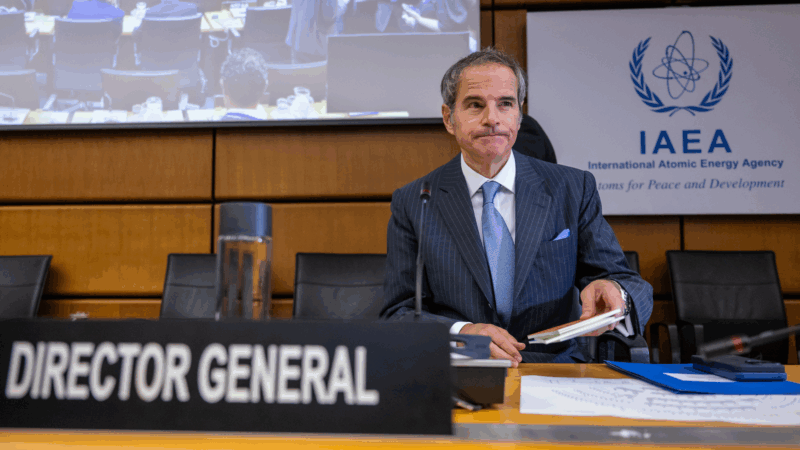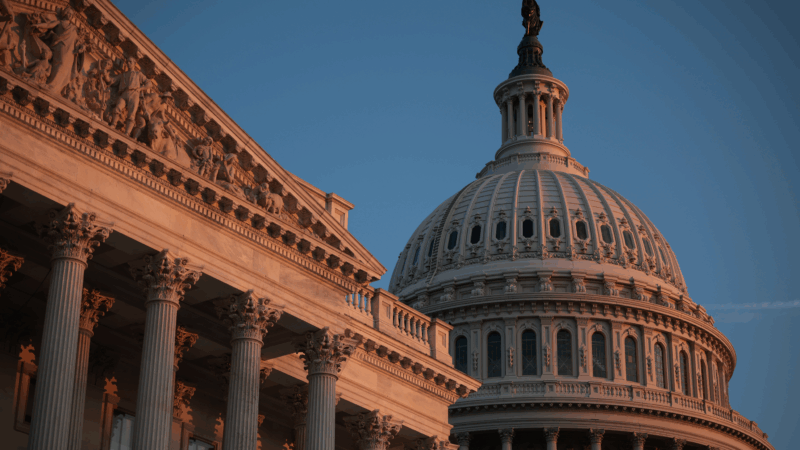U.N. nuclear watchdog says Iran could enrich uranium again in ‘a matter of months’
The head of the United Nations’ nuclear watchdog says Iran could begin enriching uranium again within months following an attack by the U.S. military on three of its facilities earlier in June.
Rafael Mariano Grossi, director general of the International Atomic Energy Agency (IAEA), the U.N. office that inspects countries’ nuclear programs to ensure compliance with nonproliferation agreements, made the comments in an interview recorded Friday and aired on Sunday by CBS’s Face the Nation.
“They can have, you know, in a matter of months, I would say, a few cascades of centrifuges spinning and producing enriched uranium, or less than that,” he said.
Grossi said he believed the facilities that were hit by U.S. bombs suffered severe but not total damage, and added that Iran had other means of achieving its nuclear goals.
“Iran had a very vast ambitious program, and part of it may still be there, and if not, there is also the self-evident truth that the knowledge is there. The industrial capacity is there. Iran is a very sophisticated country in terms of nuclear technology, as is obvious,” he said.
President Trump said shortly after the strikes that the U.S. had “totally obliterated” Iran’s three main nuclear facilities, and other administration officials have echoed a similar assessment of the mission’s success.
But a preliminary report by the Defense Intelligence Agency suggested Iran’s nuclear facilities may have only suffered “limited” damage, setting back the nuclear program by months.
On Thursday, Defense Secretary Pete Hegseth said that report was a “preliminary, low-confidence report that will continue to be refined” and called the U.S. operation a “a “historically successful attack.”
Grossi told CBS that it was possible Iran could have moved canisters of enriched uranium before the attack to a secret offsite location. The IAEA previously reported that Iran had a stockpile of over 400 kilograms — or nearly 900 pounds — of highly enriched uranium.
But President Trump reiterated in an interview aired on Fox News Sunday morning that he believes that wasn’t the case. “First of all, it’s very hard to do. It’s very dangerous to do. It’s very heavy, very very heavy,” Trump said.
Trump said he believed the attacks also caught Iran by surprise — particularly the strike on its underground Fordo facility. “And nobody thought we’d go after that site, because everybody said, ‘that site is impenetrable.'”
Grossi said it was important for the IAEA and Iran to resume discussions, and for international inspectors to be able to continue their work in the country. “We have to go back to the table and have a technically sound solution to this,” he said.
Team USA faces tough Canadian squad in Olympic gold medal hockey game
In the first Olympics with stars of the NHL competing in over a decade, a talent-packed Team USA faces a tough test against Canada.
PHOTOS: Your car has a lot to say about who you are
Photographer Martin Roemer visited 22 countries — from the U.S. to Senegal to India — to show how our identities are connected to our mode of transportation.
Looking for life purpose? Start with building social ties
Research shows that having a sense of purpose can lower stress levels and boost our mental health. Finding meaning may not have to be an ambitious project.
Sunday Puzzle: TransformeR
NPR's Ayesha Rascoe plays the puzzle with listener Joan Suits and Weekend Edition Puzzlemaster Will Shortz.
Danish military evacuates US submariner who needed urgent medical care off Greenland
Denmark's military says its arctic command forces evacuated a crew member of a U.S. submarine off the coast of Greenland for urgent medical treatment.
Only a fraction of House seats are competitive. Redistricting is driving that lower
Primary voters in a small number of districts play an outsized role in deciding who wins Congress. The Trump-initiated mid-decade redistricting is driving that number of competitive seats even lower.






